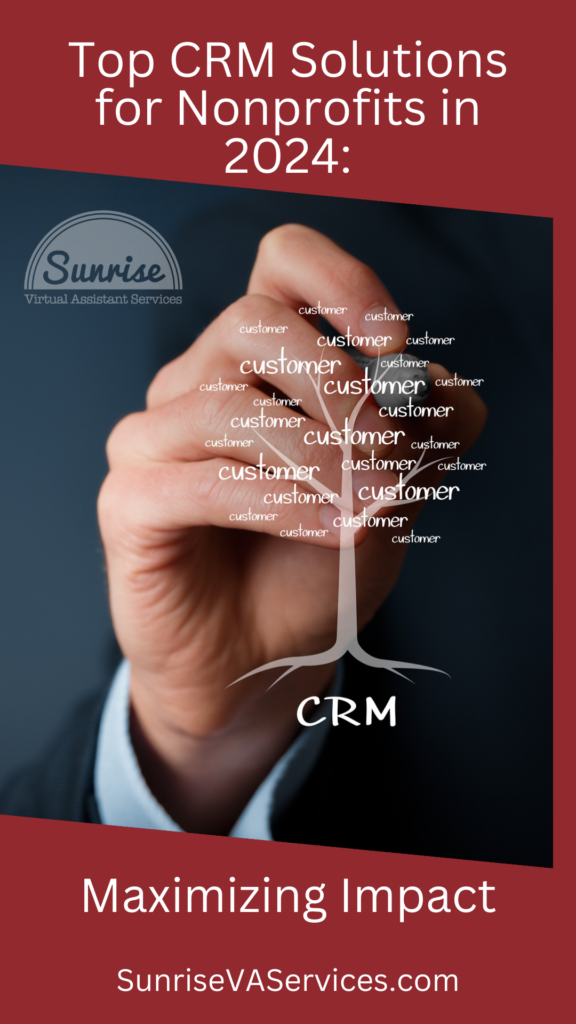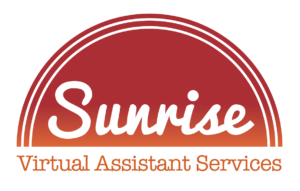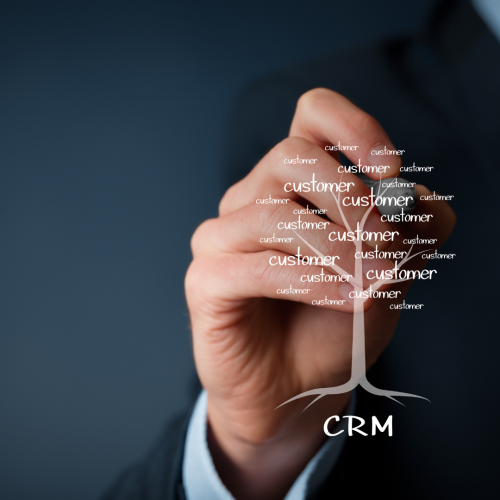Nonprofit organizations, driven by a passion for social change, frequently encounter a distinct array of challenges in their pursuit of efficiency and impact. Amidst the mission-driven chaos, managing relationships with donors, volunteers, and stakeholders can be a maze without the right tools, like CRM solutions for nonprofits. With rapidly evolving customer relationship management (CRM) systems, nonprofits can discover customized solutions to survive and thrive!
In this detailed foray into the world of nonprofit CRM solutions, we’ll explore cutting-edge software platforms that fit the bill for user-friendly interfaces, budget constraints, and the robust features essential for any nonprofit organization’s growth strategy.
Understanding the Unique Nonprofit Sector
Unlike their for-profit counterparts, nonprofits operate with different metrics and focus heavily on community, service, and long-term impact. A nonprofit’s success can be measured through its ability to foster connections, grow support, and manage resources efficiently while staying true to its missions.
CRM solutions for nonprofits must be as dynamic and varied as the organizations they support, catering to fundraising, volunteer management, program tracking, advocacy, and more. The software should (ideally) bridge the gap between human touch and data-driven strategy, mirroring the ethos of the nonprofit world.
The Quest for the Right Nonprofit CRM
The search for the perfect nonprofit CRM software is never easy. Each organization has unique requirements, which may not be fully met by off-the-shelf solutions designed for generic use. Nonprofits of all sizes particularly need to be mindful of cost implications while also ensuring that they are not compromising on the quality and functionality of the CRM.
Leveraging CRM software can assist in various nonprofit operations, such as managing membership, tracking donations, running marketing campaigns, and enhancing communications. Therefore, finding a CRM that seamlessly integrates with these facets is crucial.
But how do you find the CRM that best serves your nonprofit’s needs while aligning with your organization’s culture and goals? The secret is understanding the key features that can make or break your CRM experience.
We’ll explore some of the best nonprofit CRM solutions that marry these features with streamlined usability and cost-effectiveness.
Nonprofit CRM Essentials: Must-Have Features
Before we deep-dive into specific platforms, it’s pivotal to outline the features that you should keep an eye out for as non-negotiables in your CRM system:
Fundraising Management
A robust fundraising management system within a CRM should empower nonprofits to create and track campaigns, manage grants and major gifts, and forecast donation trends.
Volunteer and Event Management
Volunteers are the lifeblood of many nonprofits. A CRM must offer tools to recruit, schedule, and retain volunteers efficiently, as well as coordinate large and small-scale events.
Donor and Member Relations
Understanding donors and members personally is the cornerstone of any successful nonprofit. Look for CRMs that centralize and organize donor information while facilitating personalized engagement strategies.
Reporting and Analytics
The capacity to generate custom reports and analyze data is critical for decision-making. CRMs with robust reporting features can offer dashboards, custom reporting, and performance tracking for data analysis.
Communication and Marketing Efforts
The best CRM software should enable multi-channel communication to reach donors and stakeholders where they are. Look for essential features such as email marketing, social media integration, and personalized content creation tools.
Seamless Integration Capabilities
A CRM is seldom a standalone solution. The ability to integrate with accounting software, content management systems (CMS), email platforms, and more is non-negotiable, ensuring smooth data flow across the organization.
Top Nonprofit CRM Solutions for 2024
Here are five of the most efficient and popular nonprofit CRM systems that you should consider implementing in your organization:
1. Salesforce Nonprofit Success Pack (NPSP)
Salesforce NPSP has been a pioneer in designing CRM software specifically for nonprofits. It is highly customizable and scalable, offering features for donor management, online fundraising campaigns, and program tracking. NPSP also integrates seamlessly with the Salesforce AppExchange, providing a wide array of add-ons to suit different needs.
2. Bloomerang
Bloomerang has earned a solid reputation for its intuitive user interface and focus on donor retention. It prides itself on being a ‘donor management system,’ offering easy-to-use tools to track interactions and manage detailed donor profiles.
Their system also strongly emphasizes guidance and resources to help nonprofits understand and improve their fundraising efforts.
3. NeonCRM
NeonCRM boasts powerful campaign management tools, robust reporting, and an all-in-one database that simplifies data management. Its flexible software can cater to nonprofits of all sizes, and the company has a reputation for exceptional customer service and support.
4. Blackbaud Raiser’s Edge NXT
Blackbaud CRM has been a long-time player in the nonprofit software space. Raiser’s Edge NXT offers advanced fundraising solutions, comprehensive donor management software, and event management tools.
It’s a feature-rich CRM focusing on large-scale nonprofits that engage in complex fundraising activities.
5. Kindful
Kindful (now a Bloomerang partner) is a user-friendly CRM with a clean design and straightforward functionality. It specializes in donor relations, providing automation tools, personalized templates, and customizable reporting options.
Kindful integrates with many popular nonprofit tools and platforms to create a well-rounded solution for nonprofits of all types.
Choosing the Best CRM Solutions for Nonprofits
Selecting a CRM is an investment in the future of your nonprofit. When vetting different solutions, consider the following factors to make an informed decision:
Organization Size and Needs
Assess your current needs and the size of your organization. A CRM that’s a perfect fit for a mid-sized nonprofit may be overkill (or under-equipped) for a smaller one. Similarly, a CRM designed for large, multi-national nonprofits might be too complex for a growing local organization.
Usability and Adoption
A CRM will only be effective if your team adopts it. Consider the level of complexity your team members can handle, and choose a system that’s not only powerful but also user-friendly.
Budget and Cost
The cost of a CRM goes beyond the initial investment. Be sure to evaluate the total cost of ownership, including training, maintenance, and potential additional features or modules you might need.
Support and Community
Look into the support options the CRM vendor provides, including training, documentation, and user communities. Strong vendor support can make a significant difference in the success of your CRM implementation.
Flexibility and Customization
Choose a CRM that can grow and adapt to your organization. Look for software solutions that allow easy customization and integration with other tools as your nonprofit evolves.
Implementing Your Nonprofit CRM
Implementing a CRM can be a daunting task, but with proper planning and execution, it can lead to significant organizational growth. You can follow these steps to ensure a smooth transition:
Data Migration and Cleaning
A CRM is only as good as the data it contains. Before migration, ensure your data is accurate and up to date. Use this opportunity to clean out duplicates and outdated records.
Training and Change Management
To guarantee staff adoption of new training, it is essential to invest in comprehensive training and have a robust change management plan in place to address any potential resistance to change.
Pilot Testing
Consider running a short pilot test with a small team or for a specific project to work out any kinks before rolling out the CRM across the organization.
Continuous Feedback and Improvement
Encourage feedback from users and be ready to make adjustments. The best CRMs are those that are continuously tailored to meet the ever-evolving needs of the users and the organization.
Final Thoughts on CRM Solutions for Nonprofits
Selecting a CRM for your nonprofit is a strategic decision that can have truly far-reaching implications for your organization.
By carefully evaluating your options, understanding your specific needs, and prioritizing the right features, you can set your nonprofit on a path toward enhanced efficiency and, ultimately, a greater impact.
Remember that the perfect CRM for your nonprofit will be the one that not only ticks off all the feature boxes but also resonates with your team, aligns with your values, and can evolve with you as you pursue your noble mission. Happy CRM hunting!
Ready to optimize your nonprofit’s potential with the ideal CRM but need help figuring out where to start? Sunrise Virtual Assistant Services is here to assist you!
Our experienced professionals are adept at navigating the complex landscape of CRM options to find the perfect match for your unique needs.
Contact us today to begin transforming your donor management and fundraising efforts. Together, let’s unlock the full potential of your nonprofit and create an even greater impact!


